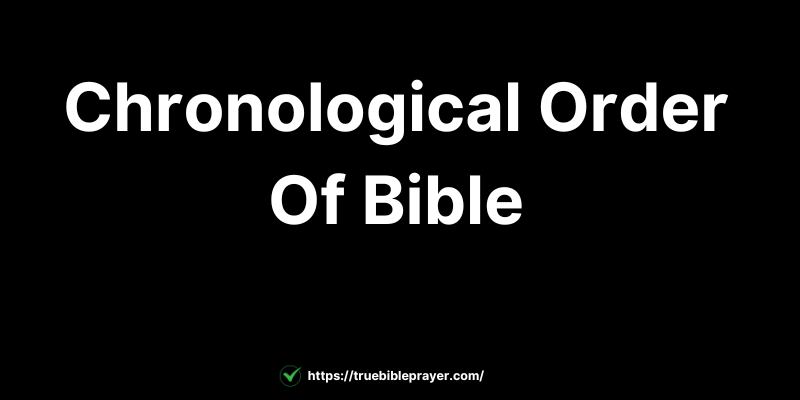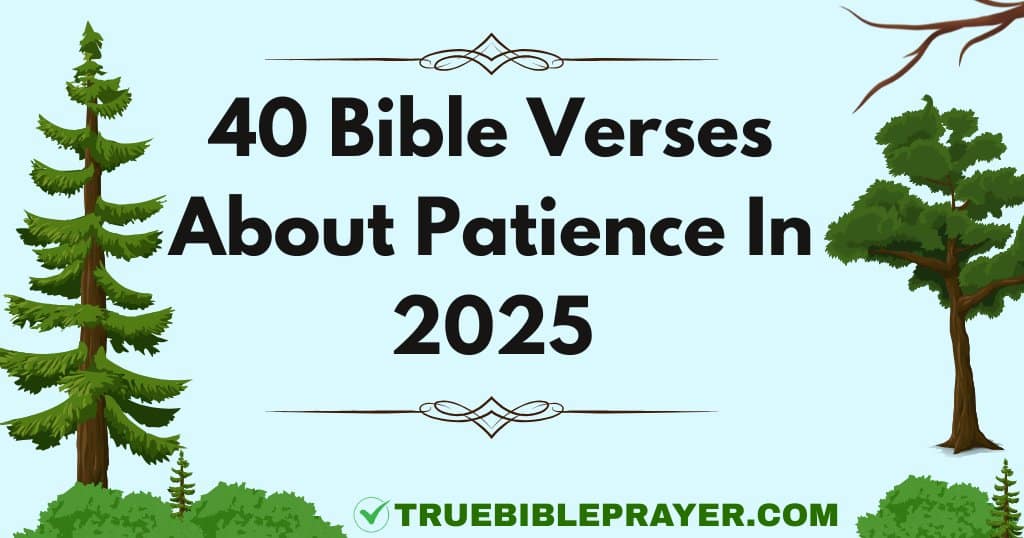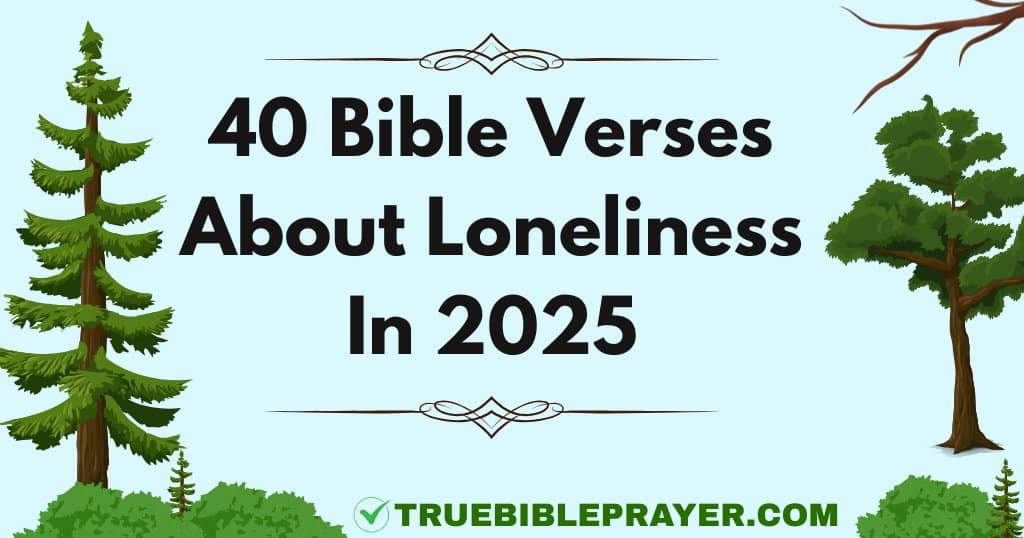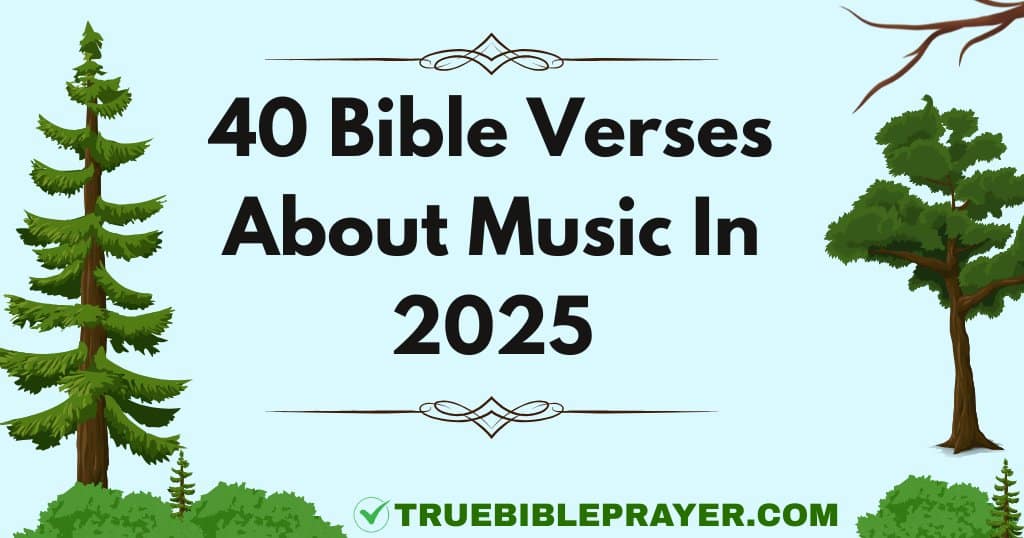Discover the chronological order of the Bible and spot how God’s story unfolds from introduction to redemption! Understanding the sequence of biblical activities enables deepen religion, imparting clarity on God’s plan for the duration of records.
While the Bible isn’t arranged strictly in chronological order, its timeless knowledge courses us in each season of life. By exploring Scripture in its historical waft, we advantage clean insights into God’s promises, teachings, and the unfolding of His divine motive.
In this article, we’ll stroll via key moments of the Bible inside the order they took place, assisting you connect the dots between activities, prophecies, and God’s eternal love. Each verse well-known shows His faithfulness and the strength of His Word to convert lives. Let’s journey through Scripture and discover the high-quality way God’s reality has been found out through the years!
Old Testament (39 Books)
- Genesis
- Job (believed to be one of the oldest books)
- Exodus
- Leviticus
- Numbers
- Deuteronomy
- Joshua
- Judges
- Ruth
- 1 Samuel
- 2 Samuel
- 1 Kings
- 2 Kings
- 1 Chronicles
- 2 Chronicles
- Psalms (written by David and others over many years)
- Proverbs (mostly written by Solomon)
- Ecclesiastes
- Song of Solomon
- Isaiah
- Hosea
- Joel
- Amos
- Obadiah
- Jonah
- Micah
- Nahum
- Habakkuk
- Zephaniah
- Jeremiah
- Lamentations
- Ezekiel
- Daniel
- Haggai
- Zechariah
- Ezra
- Nehemiah
- Esther
- Malachi
New Testament (27 Books)
- Matthew
- Mark
- Luke
- John
- Acts
- James
- Galatians
- 1 Thessalonians
- 2 Thessalonians
- 1 Corinthians
- 2 Corinthians
- Romans
- Ephesians
- Philippians
- Colossians
- Philemon
- Hebrews
- 1 Timothy
- Titus
- 2 Timothy
- 1 Peter
- 2 Peter
- 1 John
- 2 John
- 3 John
- Jude
- Revelation
| Chapter | Description | Book | Time Period |
| John 1 | In the Beginning was the Word | New Testament | Before Time |
| Genesis 1 | The Creation | Old Testament | Before 4000 BC |
| Genesis 2 | The Garden of Eden | Old Testament | Before 4000 BC |
| Genesis 3 | The Fall of Man | Old Testament | Before 4000 BC |
| Genesis 4 | Cain and Abel | Old Testament | Before 3000 BC |
| Genesis 5 | The Genealogy of Adam | Old Testament | Before 3000 BC |
| Genesis 6 | Wickedness of Man & Noah’s Ark | Old Testament | Before 2500 BC |
| Genesis 7 | The Great Flood | Old Testament | Before 2500 BC |
| Genesis 8 | The Waters Recede | Old Testament | Before 2500 BC |
| Genesis 9 | God’s Covenant with Noah | Old Testament | Before 2500 BC |
| Genesis 10 | The Nations Descended from Noah | Old Testament | Before 2100 BC |
| Genesis 11 | Tower of Babel | Old Testament | Before 2100 BC |
| Job 1 | Job’s Righteousness Tested | Old Testament | Before 2000 BC |
| Job 2 | Job’s Suffering | Old Testament | Before 2000 BC |
| Genesis 12 | The Call of Abraham | Old Testament | Around 2000 BC |
| Genesis 13 | Abraham and Lot Separate | Old Testament | Around 2000 BC |
| Genesis 14 | Abraham Rescues Lot | Old Testament | Around 2000 BC |
| Genesis 15 | God’s Covenant with Abraham | Old Testament | Around 2000 BC |
| Genesis 16 | Hagar and Ishmael | Old Testament | Around 2000 BC |
| Genesis 17 | Circumcision Covenant | Old Testament | Around 2000 BC |
| Genesis 18 | Abraham’s Visitors & Sodom’s Sin | Old Testament | Around 1900 BC |
| Genesis 19 | The Destruction of Sodom | Old Testament | Around 1900 BC |
| Genesis 20 | Abraham and Abimelech | Old Testament | Around 1900 BC |
| Genesis 21 | Birth of Isaac | Old Testament | Around 1900 BC |
| Genesis 22 | Abraham’s Test (Sacrifice of Isaac) | Old Testament | Around 1900 BC |
| Genesis 23 | Sarah’s Death and Burial | Old Testament | Around 1800 BC |
| Genesis 24 | Isaac Marries Rebekah | Old Testament | Around 1800 BC |
| Genesis 25 | Jacob and Esau Born | Old Testament | Around 1800 BC |
| Genesis 26 | Isaac and Abimelech | Old Testament | Around 1700 BC |
| Genesis 27 | Jacob Steals Esau’s Blessing | Old Testament | Around 1700 BC |
| Genesis 28 | Jacob’s Dream at Bethel | Old Testament | Around 1700 BC |
| Genesis 29 | Jacob Marries Leah & Rachel | Old Testament | Around 1700 BC |
| Genesis 30 | Jacob’s Children and Prosperity | Old Testament | Around 1700 BC |
| Genesis 31 | Jacob Flees from Laban | Old Testament | Around 1700 BC |
| Genesis 32 | Jacob Wrestles with God | Old Testament | Around 1700 BC |
| Genesis 33 | Jacob Meets Esau | Old Testament | Around 1700 BC |
| Genesis 37 | Joseph’s Dreams and Betrayal | Old Testament | Around 1700 BC |
| Genesis 39 | Joseph in Potiphar’s House | Old Testament | Around 1700 BC |
| Genesis 40 | Joseph Interprets Dreams | Old Testament | Around 1600 BC |
| Genesis 41 | Joseph Becomes Ruler of Egypt | Old Testament | Around 1600 BC |
| Genesis 42 | Joseph’s Brothers in Egypt | Old Testament | Around 1600 BC |
| Genesis 45 | Joseph Reveals Himself | Old Testament | Around 1600 BC |
| Exodus 1 | Israelites Enslaved in Egypt | Old Testament | Around 1500 BC |
| Exodus 2 | Birth of Moses | Old Testament | Around 1500 BC |
| Exodus 3 | Burning Bush & Call of Moses | Old Testament | Around 1400 BC |
| Exodus 7-12 | The Ten Plagues of Egypt | Old Testament | Around 1400 BC |
| Exodus 14 | The Parting of the Red Sea | Old Testament | Around 1400 BC |
| Exodus 20 | The Ten Commandments | Old Testament | Around 1400 BC |
| Leviticus 1 | Laws and Sacrifices | Old Testament | Around 1400 BC |
| Numbers 13 | The Twelve Spies | Old Testament | Around 1300 BC |
| Deuteronomy 34 | Death of Moses | Old Testament | Around 1300 BC |
| Joshua 1 | Joshua Leads Israel | Old Testament | Around 1300 BC |
| Judges 6 | Gideon’s Call | Old Testament | Around 1200 BC |
| 1 Samuel 16 | David Anointed as King | Old Testament | Around 1000 BC |
| 2 Samuel 5 | David Becomes King of Israel | Old Testament | Around 1000 BC |
| 1 Kings 3 | Solomon’s Wisdom | Old Testament | Around 900 BC |
| 1 Kings 8 | Dedication of the Temple | Old Testament | Around 900 BC |
| Isaiah 53 | The Suffering Servant Prophecy | Old Testament | Around 700 BC |
| Jeremiah 31 | The New Covenant Prophecy | Old Testament | Around 600 BC |
| Daniel 6 | Daniel in the Lion’s Den | Old Testament | Around 500 BC |
| Ezra 1 | The Decree to Rebuild the Temple | Old Testament | Around 500 BC |
| Nehemiah 6 | Completion of Jerusalem’s Wall | Old Testament | Around 400 BC |
| Malachi 4 | The Coming of the Messiah Prophecy | Old Testament | Around 400 BC |
| Matthew 1 | The Birth of Jesus | New Testament | Around 4 BC |
| Luke 2 | The Birth of Jesus (Detailed) | New Testament | Around 4 BC |
| John 3 | Jesus and Nicodemus | New Testament | Around AD 30 |
| Acts 2 | The Birth of the Church | New Testament | Around AD 33 |
| Revelation 22 | New Heaven and New Earth | New Testament | Future |
Who Decided What Order the Books Would Go in, and Why?
The order of the books in the Bible was decided over centuries by religious scholars, church leaders, and councils. The Old Testament follows the structure of Jewish scriptures, with books arranged by law (Torah), history, poetry, and prophecy. The New Testament was organized based on the life of Jesus (Gospels), the early church (Acts), letters from apostles (Epistles), and prophecy (Revelation).
Early church councils, such as the Council of Carthage (397 AD), confirmed the order of books, ensuring they aligned with Christian teachings. The goal was to create a logical flow, from creation to Jesus’ ministry and the future hope of believers. While the chronological order differs from the traditional order, the arrangement helps readers understand the unfolding of God’s plan throughout history.
Pros and Cons of Reading the Bible Chronologically
Pros:
Better Historical Context – Reading the Bible in order helps you understand the timeline of events, making stories more meaningful.
Clearer Narrative Flow – You see how God’s plan unfolds from creation to salvation, rather than jumping between books.
Stronger Connections – Helps you link Old and New Testament prophecies, promises, and fulfillments.
Improved Understanding – Allows for deeper comprehension of biblical history, culture, and God’s interaction with humanity.
Cons:
Less Thematic Focus – You might miss out on studying specific themes, like love, faith, or wisdom, in a structured way.
Challenging to Follow – Some books (like Psalms or Proverbs) don’t fit neatly into the chronological order, making reading complex.
Not Traditional Order – Most churches and study groups use the standard book order, so it may not align with common Bible studies.
Longer Commitment – Following a chronological reading plan can feel overwhelming, especially for beginners.
Conclusion
Understanding the chronological order of Bible reading brings a fresh perspective to God’s divine plan. It helps believers see how events connect, making scripture more immersive and impactful. This approach deepens faith by showing the consistency of God’s promises throughout history.
By following this method, readers gain a clearer understanding of biblical history and prophecy. While it may take dedication, the rewards include stronger spiritual growth and a deeper connection with God’s Word. Whether reading traditionally or chronologically, the Bible remains a guiding light for wisdom, encouragement, and truth.
FAQs
What is the chronological order of the Bible?
The chronological order of the Bible arranges its books according to historical events rather than the traditional book order. This method helps readers follow the timeline of biblical history from creation to Jesus’ resurrection and beyond.
Why should I read the Bible chronologically?
Reading the Bible in chronological order provides a better understanding of historical events, connects Old and New Testament prophecies, and reveals the unfolding of God’s plan more clearly.
Does reading the Bible chronologically change its meaning?
No, it doesn’t change the meaning but enhances comprehension by presenting events in the order they occurred. It helps contextualize stories and deepen one’s spiritual insights.
How long does it take to read the Bible in chronological order?
It depends on the reading plan, but many chronological Bible plans take about one year, with daily readings averaging 15–20 minutes. However, readers can go at their own pace.
Can I use any Bible version for chronological reading?
Yes, you can use any version of the Bible, but some editions, like the “Chronological Study Bible,” are specifically designed for this reading method. Otherwise, a reading plan can guide you through a standard Bible in chronological order.




